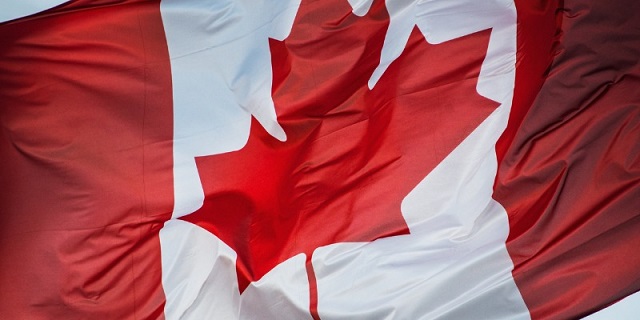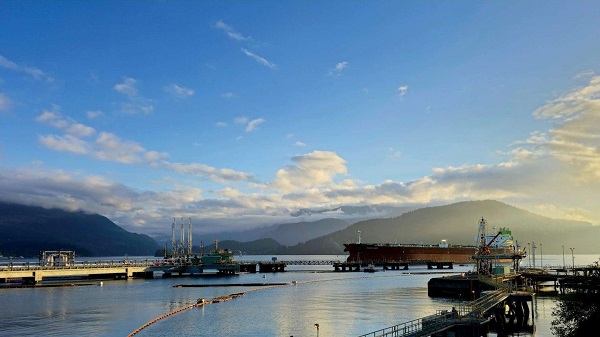Economy
24 facts for 2024—Canadians should understand impact of government policies

From the Fraser Institute
With a better understanding of the impact of government policies, Canadians will be better able to hold politicians accountable and make informed decisions at the ballot box. With the calendar now turned to 2024, here are 24 facts for Canadians to consider.
Canada’s Economic Crisis
- Average per-person incomes in Canada have stagnated from 2016 ($54,154) to 2022 ($55,863). Meanwhile, the United States has seen an increase from $65,792 to $73,565. The average Canadian now earns $17,700 less annually than the average American.
- Canada ranks just below Louisiana ($57,954) in average per-person income and slightly ahead Kentucky ($54,671). Is this the company we want to keep?
- According to the Organisation for Economic Co-operation and Development, Canada will be the worst-performing advanced economy from 2020 to 2030 and from 2030 to 2060.
- Canada’s economic growth crisis is due in large part to the decline in business investment. Business investment per worker in Canada declined by 20 per cent since 2014, from $18,363 to $14,687.
- In 2014, Canada invested about 79 cents per worker for every dollar invested in the United States—in 2021, investment was 55 cents for every U.S. dollar.
- We’ve witnessed a massive flight of capital from Canada since 2014, to the tune of more than $285 billion.
- From the onset of the COVID recession in February 2020 to June 2023, the number of government jobs across the country increased by 11.8 per cent compared to only 3.3 per cent in the private sector (including the self-employed).
Fiscal Crisis: Imprudent Spending and Massive Deficits
- The Trudeau government has increased annual spending (not including interest payments on its debt) by nearly 75 per cent since 2014, from $256 billion in 2014-15 to a projected $453 billion in 2023-24.
- With federal spending at nearly $11,500 per Canadian, the Trudeau government is on track to record the five highest levels of per-person spending in Canadian history.
- A large portion of government spending in Canada goes to pay for the 4.1 million federal, provincial and local government employees. Government employees across Canada—including federal, provincial and municipal workers—are paid 31.3 per cent higher wages (on average) than workers in the private sector. Even after adjusting for differences (education, tenure, type of work, occupation, etc.) government employees are still paid 8.5 per cent higher wages.
- The Trudeau government has used large increases in borrowing and tax increases to finance this spending. Federal debt has ballooned to $1.9 trillion (2022-23) will reach a projected $2.4 trillion by 2027/28.
- Combined federal and provincial debt in Canada has nearly doubled from $1.18 trillion in 2007/08 (the year before the last recession) to a projected $2.18 trillion this year.

Tax Increases and Canada’s Affordability Crisis
- To pay for all this spending, the total tax bill for the average Canadian family was $48,199 or 45.3 per cent per cent of its income—more than what the average family spends on housing, food and clothing combined.

- Housing and grocery costs dominated the news last year but in 2022 the average family spent $1,452 more on housing and $996 more on food while governments extracted an extra $4,566 from the average family in taxes.
- While the federal government has claimed it “cut taxes for middle-class Canadians everywhere,” in reality 86 per cent of middle-class families in Canada are paying higher income taxes under the government’s personal income tax changes. And that doesn’t account for carbon taxes, etc.
- More than 60 per cent of lower-income families (those in the bottom 20 per cent of earners) in Canada now pay higher federal income taxes because of the federal government’s tax changes.
- Seventy-four per cent of Canadians surveyed believe the average family is being overtaxed by the federal, provincial and local governments.
Damaging Energy and Environment Policy
- In the federal government, there’s a common belief that the Canadian economy is undergoing a fundamental and rapid transition towards “clean/green” industries. Yet despite massive regulations and subsidies, Statistics Canada data shows that Canada’s “green” economy amounts to only about 3 per cent of gross domestic product (GDP) and directly employs roughly 1.6 per cent of all jobs.
- The recent United Nations climate change conference pushed for a “transition away from fossil fuels.” Despite significant spending on “clean energy”, from 1995 to 2022, the amount of fossil fuels (oil, gas and coal) consumed worldwide actually increased by nearly 59 per cent.
- Canada has an opportunity to serve the world with its energy and resources and, in doing so, benefit our allies and improve both world energy security and the environment. But the federal government doesn’t see it that way. How else could one explain the latest singling out of Canada’s oil and gas sector through an arbitrary cap on greenhouse gas emissions, even though the sector only represents 26 per cent of Canada’s total GHG emissions? Even if Canada eliminated all greenhouse gas emissions expected from the oil and gas sector in 2030, the reduction would equal only 0.004 per cent of global emissions while imposing huge costs.

- As a result of new federal energy efficiency regulations, the cost of a newly constructed home in Canada will increase by $55,000, on average, by 2030 because of the federal government’s stricter energy efficiency regulations for buildings. Rather than increasing the costs of new homes, governments should help close the gap between supply and demand.
Our Failing Health-Care System
- How good is our health-care system? Canada’s average health-care wait times hit 27.7 weeks in 2023—the longest ever recorded and nearly 200 per cent longer than the 9.3 weeks in 1993 when the Fraser Institute began tracking wait times.
- Among a group of 30 high-income countries that have universally accessible health care, Canada spends the most money on health care as a percentage of GDP.
- Despite this high spending, we are a poor performer. Among this group, Canada had the longest wait lists and ranked:
- 28th (out of 30) for the number of doctors
- 23rd (out of 29) for the number of hospital beds available
- 23rd (out of 29) for the number of psychiatric beds available
- 25th (out of 29) for the number of MRI machines
- 26th (out of 30) for CT scanners
Author:
Economy
What the Data Shows About the New Canada-Alberta Pipeline Opportunity

From Energy Now
By Canada Powered by Women
Canada has entered a new period of energy cooperation, marking one of the biggest shifts in federal–provincial alignment on energy priorities in years.
Last week as Prime Minister Mark Carney and Alberta Premier Danielle Smith signed a memorandum of understanding (MOU) that outlines how both governments will approach a potential pipeline to British Columbia’s coast.
The agreement, which has been described as a “new starting point” after years of tension, lays the groundwork for a privately financed pipeline while also linking this commitment to a broader set of infrastructure priorities across oil and gas, LNG, renewables, critical minerals and electricity transmission.
It also sets out how a privately financed project, moving roughly 300,000 to 400,000 barrels of oil to global markets each day, will be reviewed.
Now that the announcement is behind us, attention has turned to how (or if) a pipeline is going to get built.
Alberta has set out its ambitions, British Columbia has its conditions, and the federal government has its own expectations. Together, these positions are shaping what some are calling a “grand bargain” which will be made up of trade-offs.
Trade-offs are not a new concept for the engaged women that Canada Powered by Women (CPW) represents, as they’ve been showing up in our research for several years now. And anyone who reads us also knows we like to look at what the data says.
According to new polling from the Angus Reid Institute, a clear majority of Canadians support a pipeline, with national backing above 60 per cent. And there’s strong support for the pipeline among those in B.C. This aligns with other emerging data points that show Canadians are looking for practical solutions that strengthen affordability and long-term reliability.
By the numbers:
• 60 per cent of Canadians support the pipeline concept, while 25 per cent oppose it.
• 53 per cent of people support in British Columbia, compared to 37 percent opposed.
• 74 per cent of people in Alberta and Saskatchewan support the pipeline.

Our research shows the same trends.
A large majority (85 per cent) of engaged women agree that building pipelines and refining capacity within the country should be prioritized. They favour policies that will progress stability, affordability and long-term economic opportunity.
A key feature of the MOU is the expectation of Indigenous ownership and benefit sharing, which Alberta and B.C. governments identify as essential, and which aligns with public opinion. As of right now, Indigenous groups remain split on support for a pipeline.
The agreement also signals that changes to the federal Oil Tanker Moratorium Act may need to be considered. The moratorium, in place since 2019, is designed to limit large tanker traffic on the North Coast of B.C. because of navigation risks in narrow channels and the need to protect sensitive coastal ecosystems.
Those in favour of the pipeline point to this as a critical barrier to moving Canadian oil to international markets.
Polling from the Angus Reid Institute shows that 47 per cent of Canadians believe the moratorium could be modified or repealed if stronger safety measures are in place. Again, we come back to trade-offs.
The MOU is a starting point and does not replace consultation, environmental review or provincial alignment. These steps are still required before any project can advance. Taken together, the agreement and the data show broad support for strengthening Canada’s energy options.
This will be an issue that engaged women are no doubt going to watch, and the conversation is likely to move from ideas to discussing what trade-offs can be made to bring this opportunity to life.
Business
US Energy Secretary says price of energy determined by politicians and policies


From the Daily Caller News Foundation
During the latest marathon cabinet meeting on Dec. 2, Energy Secretary Chris Wright made news when he told President Donald Trump that “The biggest determinant of the price of energy is politicians, political leaders, and polices — that’s what drives energy prices.”
He’s right about that, and it is why the back-and-forth struggle over federal energy and climate policy plays such a key role in America’s economy and society. Just 10 months into this second Trump presidency, the administration’s policies are already having a profound impact, both at home and abroad.
While the rapid expansion of AI datacenters over the past year is currently being blamed by many for driving up electric costs, power bills were skyrocketing long before that big tech boom began, driven in large part by the policies of the Obama and Biden administration designed to regulate and subsidize an energy transition into reality. As I’ve pointed out here in the past, driving up the costs of all forms of energy to encourage conservation is a central objective of the climate alarm-driven transition, and that part of the green agenda has been highly effective.
Dear Readers:
As a nonprofit, we are dependent on the generosity of our readers.
Please consider making a small donation of any amount here.
Thank you!
President Trump, Wright, and other key appointees like Interior Secretary Doug Burgum and EPA Administrator Lee Zeldin have moved aggressively throughout 2025 to repeal much of that onerous regulatory agenda. The GOP congressional majorities succeeded in phasing out Biden’s costly green energy subsidies as part of the One Big Beautiful Bill Act, which Trump signed into law on July 4. As the federal regulatory structure eases and subsidy costs diminish, it is reasonable to expect a gradual easing of electricity and other energy prices.
This year’s fading out of public fear over climate change and its attendant fright narrative spells bad news for the climate alarm movement. The resulting cracks in the green facade have manifested rapidly in recent weeks.
Climate-focused conflict groups that rely on public fears to drive donations have fallen on hard times. According to a report in the New York Times, the Sierra Club has lost 60 percent of the membership it reported in 2019 and the group’s management team has fallen into infighting over elements of the group’s agenda. Greenpeace is struggling just to stay afloat after losing a huge court judgment for defaming pipeline company Energy Transfer during its efforts to stop the building of the Dakota Access Pipeline.
350.org, an advocacy group founded by Bill McKibben, shut down its U.S. operations in November amid funding woes that had forced planned 25 percent budget cuts for 2025 and 2026. Employees at EDF voted to form their own union after the group went through several rounds of budget cuts and layoffs in recent months.
The fading of climate fears in turn caused the ESG management and investing fad to also fall out of favor, leading to a flood of companies backtracking on green investments and climate commitments. The Net Zero Banking Alliance disbanded after most of America’s big banks – Goldman Sachs, J.P. Morgan Chase, Citigroup, Wells Fargo and others – chose to drop out of its membership.
The EV industry is also struggling. As the Trump White House moves to repeal Biden-era auto mileage requirements, Ford Motor Company is preparing to shut down production of its vaunted F-150 Lightning electric pickup, and Stellantis cancelled plans to roll out a full-size EV truck of its own. Overall EV sales in the U.S. collapsed in October and November following the repeal of the $7,500 per car IRA subsidy effective Sept 30.
The administration’s policy actions have already ended any new leasing for costly and unneeded offshore wind projects in federal waters and have forced the suspension or abandonment of several projects that were already moving ahead. Capital has continued to flow into the solar industry, but even that industry’s ability to expand seems likely to fade once the federal subsidies are fully repealed at the end of 2027.
Truly, public policy matters where energy is concerned. It drives corporate strategies, capital investments, resource development and movement, and ultimately influences the cost of energy in all its forms and products. The speed at which Trump and his key appointees have driven this principle home since Jan. 20 has been truly stunning.
David Blackmon is an energy writer and consultant based in Texas. He spent 40 years in the oil and gas business, where he specialized in public policy and communications.
-

 Business2 days ago
Business2 days agoCarney’s Toronto cabinet meetings cost $530,000
-

 Bruce Dowbiggin2 days ago
Bruce Dowbiggin2 days agoIntegration Or Indignation: Whose Strategy Worked Best Against Trump?
-

 COVID-191 day ago
COVID-191 day agoCanadian legislator introduces bill to establish ‘Freedom Convoy Recognition Day’ as a holiday
-

 espionage2 days ago
espionage2 days agoDigital messages reportedly allege Chinese police targeted dissident who died suspiciously near Vancouver
-

 International2 days ago
International2 days agoFBI may have finally nabbed the Jan. 6 pipe bomber
-

 Censorship Industrial Complex2 days ago
Censorship Industrial Complex2 days agoJustice Centre campaigning Canadian provinces to follow Alberta’s lead protecting professionals
-

 COVID-192 days ago
COVID-192 days agoUniversity of Colorado will pay $10 million to staff, students for trying to force them to take COVID shots
-

 Business2 days ago
Business2 days agoOil tanker traffic surges but spills stay at zero after Trans Mountain Expansion









